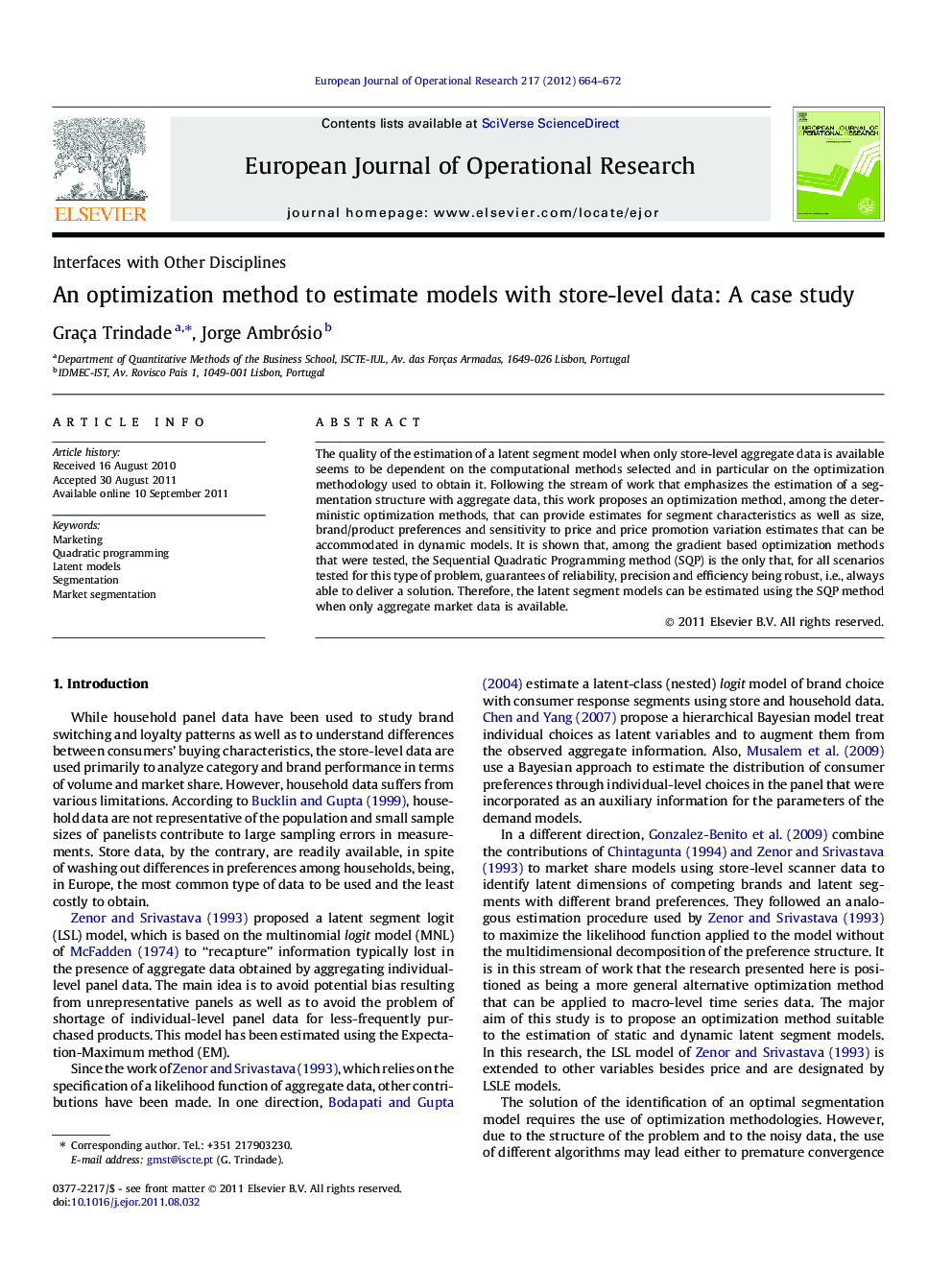| Article ID | Journal | Published Year | Pages | File Type |
|---|---|---|---|---|
| 481465 | European Journal of Operational Research | 2012 | 9 Pages |
The quality of the estimation of a latent segment model when only store-level aggregate data is available seems to be dependent on the computational methods selected and in particular on the optimization methodology used to obtain it. Following the stream of work that emphasizes the estimation of a segmentation structure with aggregate data, this work proposes an optimization method, among the deterministic optimization methods, that can provide estimates for segment characteristics as well as size, brand/product preferences and sensitivity to price and price promotion variation estimates that can be accommodated in dynamic models. It is shown that, among the gradient based optimization methods that were tested, the Sequential Quadratic Programming method (SQP) is the only that, for all scenarios tested for this type of problem, guarantees of reliability, precision and efficiency being robust, i.e., always able to deliver a solution. Therefore, the latent segment models can be estimated using the SQP method when only aggregate market data is available.
► Optimization methods can estimate latent multinomial logit models with aggregate data. ► With deterministic optimization methods several initial sets must be attempted. ► The Sequential Quadratic Programming method is recommended for this type of problems. ► The procedure is applied to the segmentation of a market of laundry powder detergents. ► LSLE models can be extended to include more marketing variables and stores.
